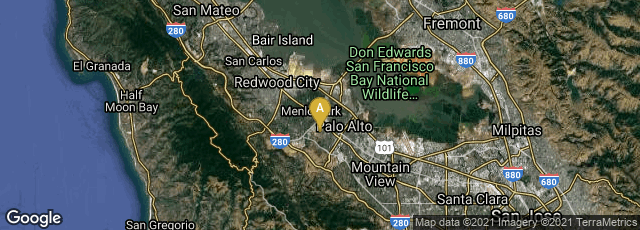

A: Stanford, California, United States
In 1999 the LOCKSS open-source, library-led digital preservation system ("Lots of Copies Keep Stuff Safe") began intensive testing at Stanford University. The system provides libraries with:
"low-cost, open source digital preservation tools to preserve and provide access to persistent and authoritative digital content.
"Librarians need to know that the digital content they acquire today will not disappear when they cancel subscriptions, and that their electronic collections can be preserved and accessed by readers far into the future.
"Publishers need to know that the integrity of their web-based content will remain unchanged and available in perpetuity—even if their own website is no longer available."
"The LOCKSS system is the first and only mechanism to apply the traditional purchase-and-own library model to electronic materials. The LOCKSS system allows librarians at each institution to take custody of and preserve access to the e-content to which they subscribe, restoring the print purchase model with which librarians are familiar. Using their computers and network connections, librarians can obtain, preserve and provide access to purchased copies of e-content. This is analogous to libraries’ using their own buildings, shelves and staff to obtain, preserve and provide access to paper content. The LOCKSS model restores libraries’ ability to build and preserve local collections.
A LOCKSS network functions in much the same way as traditional library networks, reinforcing the strength of the library community. Participating libraries acquire copies of important “stuff,” but instead of paper, LOCKSS libraries acquire digital content in their local LOCKSS Box. Through a LOCKSS distributed network, libraries are cooperating with one other to ensure their preserved content remains authentic and authoritative. This collaboration measure and validates the integrity of the participants’ holdings. As a result, libraries are self-reliant and self-sustainable in their communities.
When the publisher’s web site is unavailable for any reason, content is served from the library’s “LOCKSS Box,” guaranteeing immediate and continuous user access. There are no “trigger events” that require human intervention. LOCKSS delivers a copy of the original publication to authorized users in real time, whenever it is needed. Because LOCKSS preserves the original publisher’s copy of each item, it ensures that the most authoritative version persists, unchanged, with full credit to the publisher" (http://www.lockss.org/about/what-is-lockss/, accessed 12-08-2013).